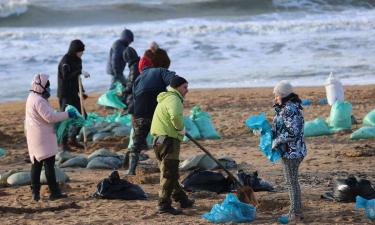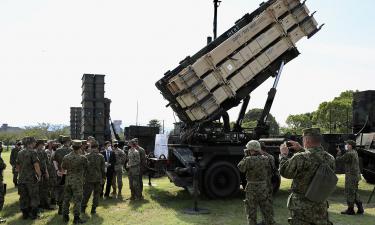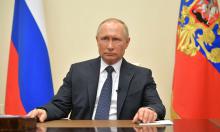Igor Ivanov on Latvian statements
Latvian secret-service chiefs claim that the Russian intelligence community has become more active in the Baltics; such statements are some kind of an admission fee for joining NATO.
This was disclosed on Tuesday by Igor Ivanov, Secretary of Russia's Security Council. Ivanov made this statement after journalists asked him to comment on a recent statement by Janis Kazocins, director of Latvia's Constitution Protection Bureau.
What specific facts highlight such intelligence activity? Ivanov inquired. According to Ivanov, the expulsion of Russian diplomats without any evidence whatsoever doesn't point to active intelligence operations.
We have noticed that the Baltics had punctually declared several officials persona non grata, before joining NATO; the same had happened prior to NATO's previous expansion, Ivanov noted. It seems like any country must buy a ticket before it joins NATO; it must take some mandatory action, such as declaring a Russian diplomat persona non grata, Ivanov explained.
According to Ivanov, the political bias of such actions is absolutely obvious.
Our secret services maintain official contacts with their colleagues in most countries of the world, Ivanov noted; in his words, secret-service representatives meet each other in case of trouble, solving all problems between themselves.
Meanwhile no one needs a political "soap bubble," Ivanov believes.
Ivanov suggested that one should not chase mythical enemies where such enemies don't exist; on the contrary, we must chase real-life adversaries, who threaten our common security in real earnest, Ivanov added.
The list of such real-life adversaries includes international terrorism, first and foremost; we don't confront each other; on the contrary, we face global terrorism at this stage, Ivanov went on to say.
Ivanov gave an A grade to the Constitution Protection Bureau's chiefs for learning their lesson.
I think this amounts to repercussions concerning the admission of Latvia into NATO; and the security-service representative should be given an A grade for learning his lesson, Ivanov said.
Russia doesn't threaten the Baltics, and vice versa, as far as security aspects are concerned, Ivanov told those present.
Russia is not threatened by any country or bloc at this stage; nor does Russia threaten anyone, Ivanov noted.
Mutual discussions have something to do with human rights, as well as the safety of private individuals, rather than state-security aspects, Ivanov went on to say.
We didn't react negatively to the admission of the Baltics into NATO because they now present a greater threat to Russia's national security; on the contrary, our negative reaction can be explained by the fact that we perceive the expansion of blocs as an incorrect option for tackling present-day stability problems, Ivanov added.
NATO should renounce the Cold War ideology for the sake of its real-life transformation; moreover, it should renounce Cold War stereotypes in this connection.
The Soviet Union and the Warsaw Pact are now history; however, other threats have emerged, Ivanov told his audience.
In his opinion, NATO will be needed, in case it manages to respond to new challenges; meanwhile its mechanical expansion doesn't reduce such threats.
We believe that each side should act accordingly, if top-level Russia-NATO documents formalize efforts to establish partner-like relations, Ivanov noted.
The global situation hasn't changed in any way after the deployment of four aircraft in Lithuania; nor did such aircraft threaten Russian national security; however, their appearance didn't enhance Lithuanian security either, Ivanov stressed.
In this connection, one can say their deployment was a political step, Ivanov noted. Why did NATO have to do this at a time when we are saying that we are partners? This amounts to old-time stereotypes, Ivanov stressed.
As we see it, an adapted CFE (Conventional Forces In Europe) Treaty must be ratified for the sake of removing current mutual concerns and alarms, Ivanov believes.
Ivanov suggests establishing the relevant consultative mechanisms, which would make it possible to discuss projected steps well in advance.
We have informed the NATO Secretary-General that mutual steps should be transparent and comprehensible, Ivanov noted. In his opinion, we must proceed from the real-life situation, rather than political directives.
We'll be forced to retaliate, if certain actions present a potential threat to us; still I don't think this would be the right choice, Ivanov noted. It would be more expedient to spend these material and political resources on fighting real-life threats, such as terrorism, drug trafficking, as well as the trafficking in women and children, Ivanov said in conclusion.
Subscribe to Pravda.Ru Telegram channel, Facebook, RSS!




